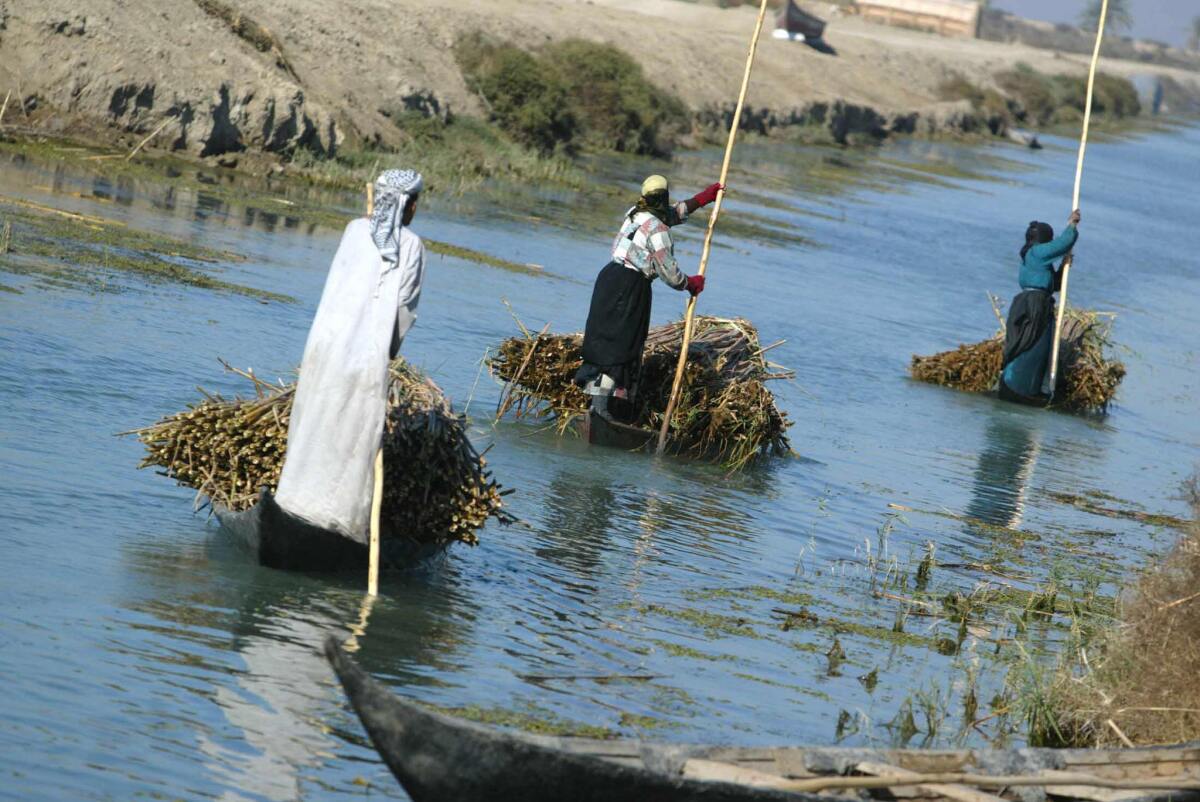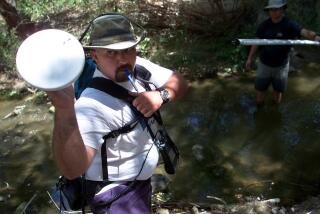Former O.C. resident wins $150,000 prize for restoring Iraq marshland

- Share via
Azzam Alwash, an Iraqi immigrant and former Fullerton resident who returned to Iraq in 2003 to lead a marshlands restoration project, has received the Goldman Environmental Prize, a $150,000 prize awarded to six environmentalists annually.
Alwash led a project to reflood the dessicated marshlands between the Tigris and Euphrates rivers, an ecosystem twice the size of the Florida Everglades. The marshlands became a political battleground during Saddam Hussein’s 30-year reign in Iraq.
To punish opponents of his regime, Hussein built canals with names such as Mother of Battles to drain water from the marshlands and sap the lifeblood of the Marsh Arabs, a community of indigenous Iraqis who depended on the swamp to survive.
The ecosystem became a desert of salt and sand. The Marsh Arabs scattered and became farmers and refugees.
But in 2003, Alwash launched an ambitious environmental engineering project: reflood the marshes and bring back the Marsh Arabs.
So far his efforts have helped restore about half the original spread of marshlands, and Marsh Arabs are starting to return in greater numbers.
Alwash said the marshlands are also poised to become Iraq’s first national park. Officials are planning ecotourism centers and a nature guide training program.
Alwash received the prize because he made environmental protection a priority in the most unlikely of settings, said Lorrae Rominger, executive director of the Goldman Environmental Prize.
“To bring environmental protection to the forefront in war-torn Iraq, where people are focused on restoring peace and staying alive, that would seem an impossible challenge, but not to Azzam,” Rominger said.
The project, which uses flow regulators to mechanically reflood the marshes each year, cost about $100 million to complete. Funding came from local Iraqis and international sources. To gain the support of officials and sponsors, Alwash said he couched his argument in terms of the intrinsic value of services the marshlands could provide.
“This is environment in the service of humanity,” Alwash said. “The marshes are an engine of the economy.”
As a child, he boated the reed-lined waterways of the marsh with his father. It was a “verdant, green Eden,” he said.
Those marshlands will never be fully restored. Upstream dams of the Euphrates and Tigris rivers have forever altered flooding patterns that were an annual “drumbeat of the symphony of biodiversity,” Alwash said.
“It’s forever going to be a managed wetlands,” he said.
Alwash said he wants to use the money from the prize to advocate for more cooperative water policies between Iraq and Turkey.
“I want to change the dialogue from ‘whose water this is’ to how we can cope with the issues together,” he said.
Alwash vividly remembers his first return to the marshes in 2003. Where before reeds extended to the sky and fish darted in clear water, he found only dust and brackish water. But he also came across a Marsh Arab erecting a hut in a parched clearing, a trickle of water running nearby.
“Why did you return?” Alwash asked the man.
The man’s answer could have been his own, Alwash said.
“For dignity.”
ALSO:
Audrie Pott’s family plans to speak about assault, arrests
Giant chalkboard invites ‘bucket list’ wishes in Westchester
Costa Mesa man who died in blast is linked to rambling online essay
More to Read
Sign up for Essential California
The most important California stories and recommendations in your inbox every morning.
You may occasionally receive promotional content from the Los Angeles Times.














